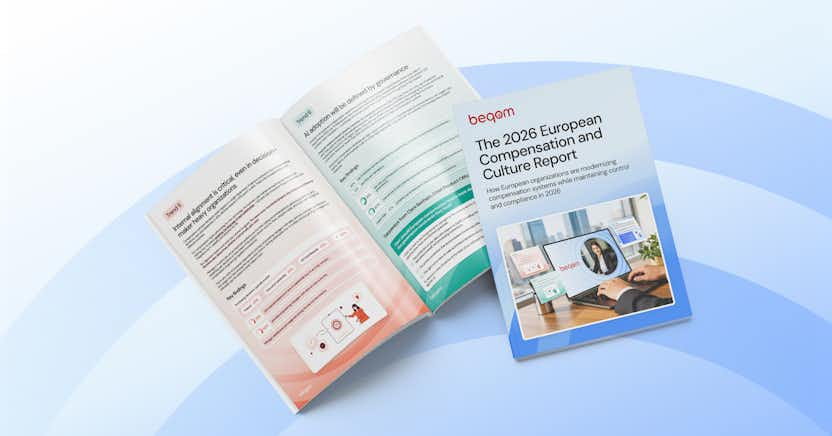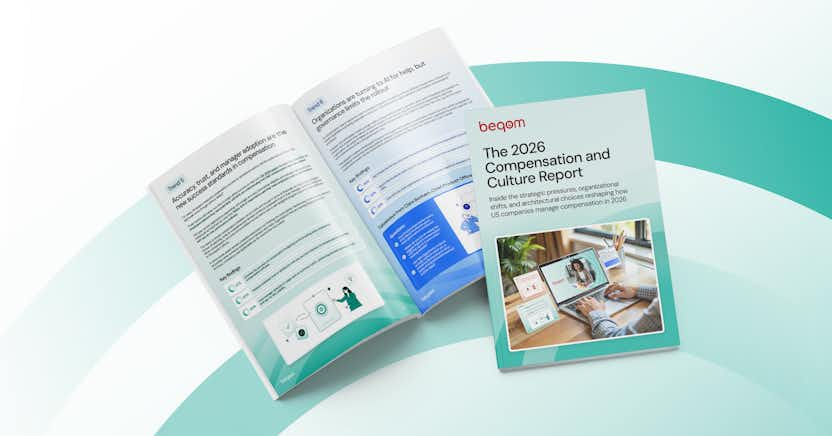In Compensation Management, Simple Human Error Can Cost Your Business Millions

Learn more about the following beqom products
Did you hear about the Australian worker who was paid more than 100 times his normal salary because human error placed a decimal point in the wrong place? Errors in compensation, whether in sales commissions, bonuses, salaries, or other forms of pay, cost companies large sums every year. There is no longer any reason this should happen. Fixing this problem is the low-hanging fruit for compensation management systems.
The Australian worker was supposed to receive a salary of approximately A$5,000 but instead found almost A$500,000 in his account. A report blamed two human errors: the incorrect data entry in the first place and the failure to deal with a system-generated alert.
This story brought to mind a conversation about compensation challenges with Peter Devlin, Head of Total Rewards at Deloitte, Germany, where he said, “In my 30 years of consulting experience, the most common reason for things to go wrong in compensation or pensions—everything to do with total rewards—are simple mathematical errors.”
The sheer size of the error in the above story has a certain comedic appeal to it. The employee followed his conscience, the money was dutifully returned, and the story made it to the press. But what about the thousands of other errors that we don’t hear about in the news? What are some of the negative consequences of errors in both compensation and sales performance management?
A small error can have a huge effect on the employee
A simple human error is not always going to have such a large sum attached to it as the story from Australia, nor is it always going to be in favor of the individual. The smallest discrepancy can lead to negative effects on the employee that can quickly spiral out of control. Employees’ mistrust in their remuneration packages can lead to a lack of motivation and even dissatisfaction in their roles. Dissatisfied employees tend to spend less time focusing on their job duties and more time complaining about why they are not happy at work. This naturally translates to a lack of productivity.
What affects the employee, affects the organization too
The organizational effects of human errors in pay can be vast, with the threat of decreased revenue, wasted time, and possible regulatory noncompliance. Unlike in the case of our honest Australian, overpayments are virtually never reported by the recipient, so almost never recovered.
For a large scale organization that falls victim to just a one percent error rate, an enterprise of 18,000 employees paying an average salary of $50,000 per year could lose up to $9 million.
Beyond the monetary impact, some of the most important consequences to consider are those that negatively affect the employee. Human capital is an organization's most valuable asset, and employee satisfaction is critical to its overall success.
To reduce human error, reduce the potential for it
It follows that if you want to curb the costs of human error, you must first remove dependence on humans for data input and calculation. With the integrated data systems that now make the world turn, we are well past the stage where large enterprises can manipulate tens of millions in compensation figures in simple spreadsheets. Implementing solutions that move away from spreadsheet-based processes to automated ones can not only protect your business from errors in employees’ paychecks but improve the quality of life for those who are now stuck doing the data entry.
Using dedicated compensation software to provide error-free and timely payouts will help eliminate disputes and increase productivity. Waking up to see an extra half a million dollars in your account may sound like a dream, but mistakes like this are certainly not the way to win over your workforce. An employee that knows that they have been paid correctly for their role will turn up to work motivated and engaged, reducing costly retention issues, and ultimately instilling happiness in the workforce.
Is your compensation system holding back your business? Download our free guide, 8 Signs Your Compensation System is Holding Back Your Business, to find out.
Editor's note: This is a greatest hits blog, updated from its first publication in December 2018.








